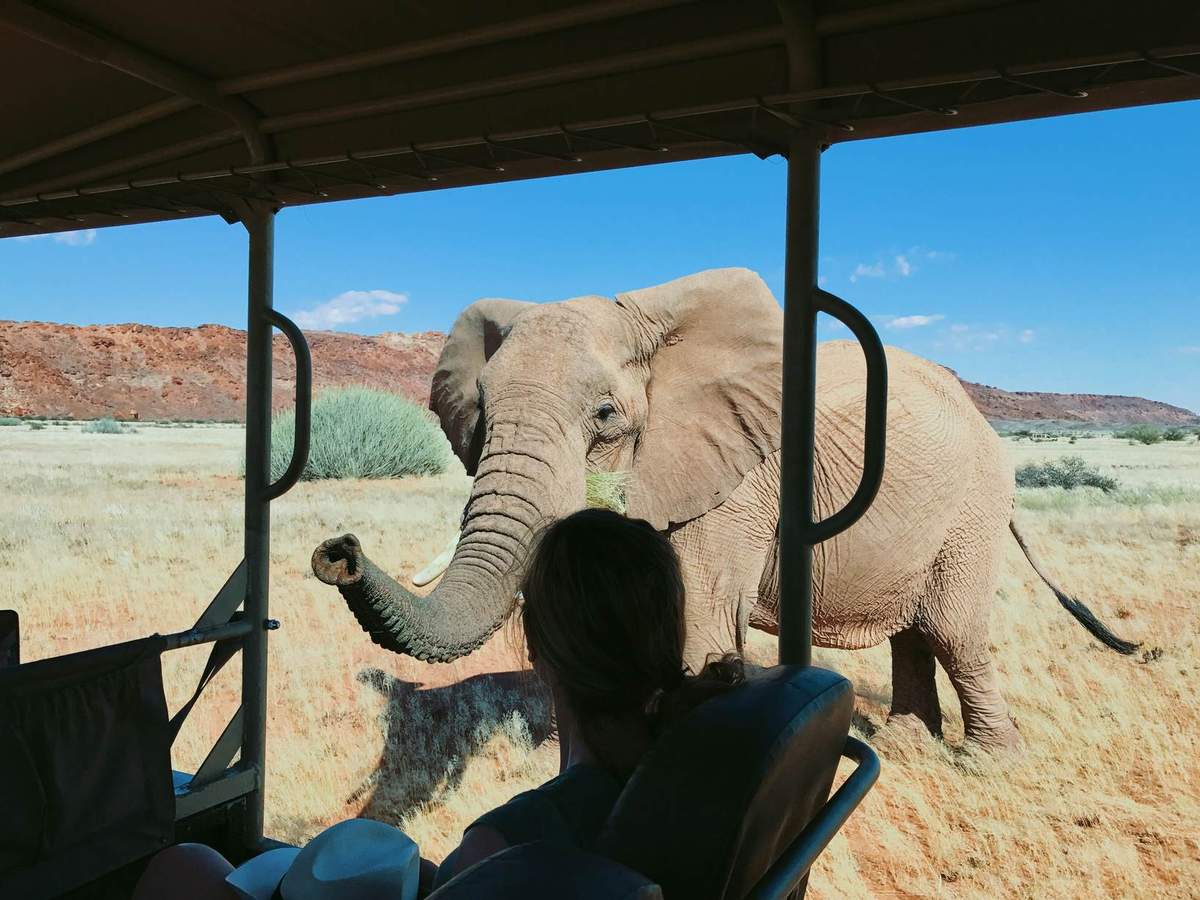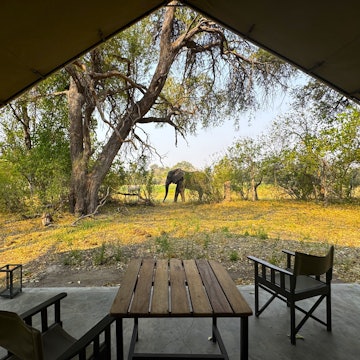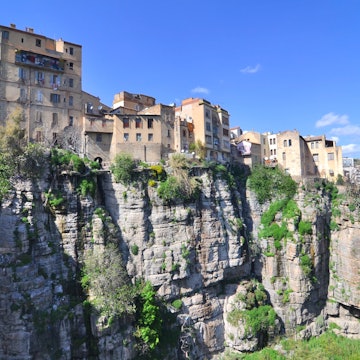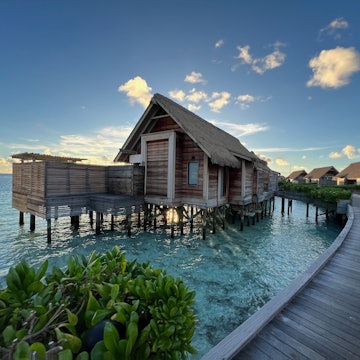
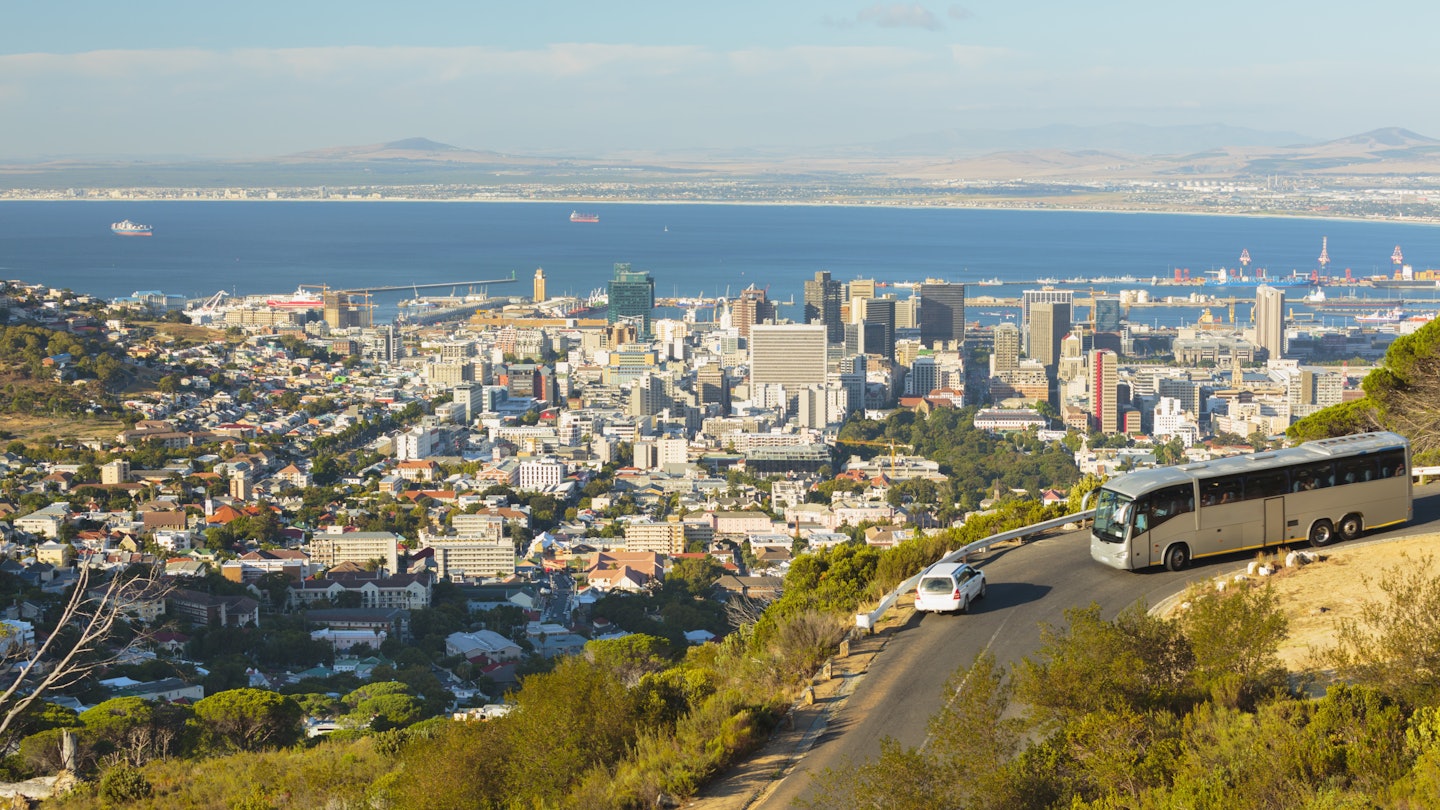
Coach travel in Cape Town, South Africa. Michal Krakowiak/Getty Images
South Africa is the ninth-biggest country in Africa and figuring out how to get around efficiently takes some serious thought and planning. How do you move between bustling cities and epic countryside safely, quickly and cost effectively, while being mindful of your impact on the environment?
Whether you're going by rail, road or air, here's everything you need to know to help you plan your travels around South Africa.
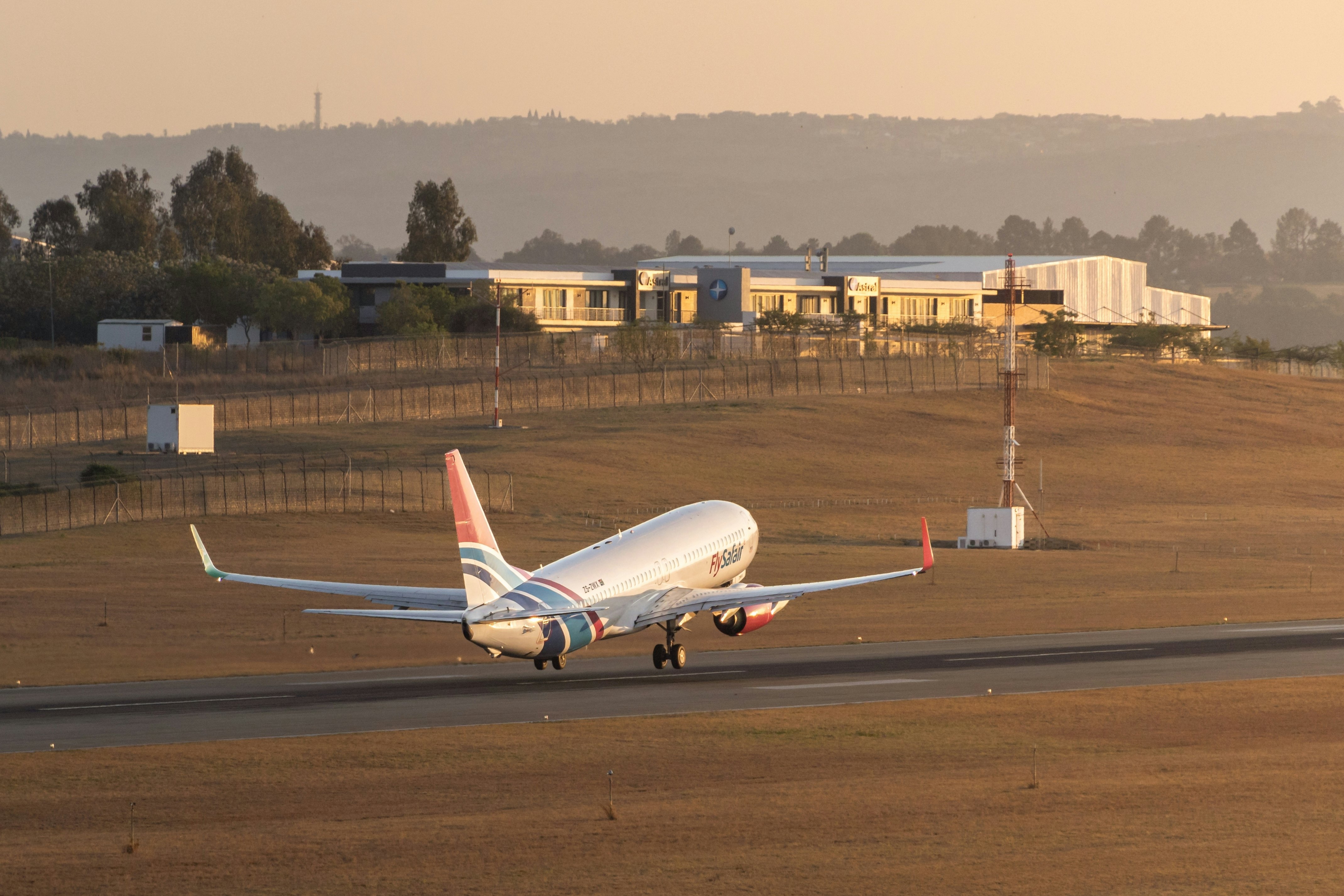
There is an extensive domestic air network
South Africa is almost five times the size of England and twice the size of Texas, so it can be worth taking to the air if you have a lot of ground to cover in a limited time. The main cities are well connected by convenient flights. The domestic airline with the most extensive network is Airlink, which flies through 17 South African airports, along with others in southern and central Africa. FlySafair is also reliable and recommended but reaches less than a dozen destinations.
If you have time constraints, flying is the best – though least climate-friendly – option for getting around South Africa. However, airports are often a considerable distance from the city, and it’s worth factoring in the additional costs and travel time getting into the city center.
Almost every city and town is connected by bus
Greyhound, Intercape, Eagle Liner and Citiliner Plus are some of the major long-distance coach options for travelers operting across South Africa. These networks have efficient online booking systems and between them, they connect almost every city and town in the country with safe, comfortable and affordable vehicles. All long-distance coaches are equipped with air-conditioning and toilets.
Tip for taking long-distance buses: Tickets vary according to distance and route. In high season, specifically during the school Christmas holidays, prices can rise by as much as 30%.

Rent a car and self-drive in rural areas and national parks
Public transport in South Africa is limited when it comes to remote, rural communities and almost nonexistent if you want to explore the wilderness and the all-important national parks and reserves. To experience the thrill and charm of backcountry South Africa, you’ll need your own wheels.
The entire country is networked by top-quality and beautifully scenic roads, along with enough endless stretches of gravel top to appeal to any adventurous road-tripper. There are several reliable and relatively inexpensive car rental companies, including Avis, Hertz, Carwiz and Tempest Car Hire. If you’re traveling in a group, car rental often turns out to be the most affordable option, with rates starting around R540 (US$30) per day. Prices are usually lower if you book in advance rather than upon arrival at the airport.
Bear in mind that many parks – specifically Kruger National Park and Addo Elephant National Park – have such excellent road infrastructure that a 4WD is not necessary and, as long as you confine yourself to the tarmac routes, you can get around even in a small hatchback.
If you’re driving in a Big Five country, do some research regarding etiquette and safety precautions, especially in dealing with elephants. An environmentally sound 4WD rental company is Tread Lite, which offers affordable, compact and delightfully quirky Suzuki Jimnys with all the necessary camping kit for a price tag from R1547 (US$87) per day, depending on the time of year and length of your stay. Tread Lite is also an absolute mine of information when planning your route.

Minibuses are a budget but less safe option
Be aware that in South Africa the word “taxi” is most commonly applied to the privately owned minibuses that connect virtually every town and village in the country. Often overloaded and dangerously driven, it is a mode of transport avoided by most people with sufficient funds to use another option. If you decide to give it a shot, know that you won't have much room for luggage, the schedules are rarely set and you'll have to ask around to find out where to wait.
Book on a tour bus for affordable, flexible travel in South Africa
Aimed at backpackers, Bazbus is a perfect option for solo travelers looking for a more sociable mode of transport. The hop-on-hop-off travel pass means that you can take as long as you want to go from A to B. For example, tickets between Cape Town and Port Elizabeth start at around R3900 (US$219) on a route that passes through the coastal highlights of the Garden Route. The company also offers a three-day Kruger safari from R11,560 (US$650) per person.
Highly recommended, Oasis Overland offers a 17-day trip from Cape Town to Jo’burg that takes in most of the main sights, including Addo, Royal Natal National Park and even a visit to the mountain kingdom of Lesotho, for about R29,000 (US$1630). If you want to make South Africa part of a once-in-a-lifetime African trip, look into the 94-day Grand Adventurer trip from Nairobi to Johannesburg.
There is a luxurious overnight train service
If you’re not in a hurry, the train is often the most pleasant way of getting around South Africa. You can settle in for a relaxing overnight journey, watching the countryside slip past and chatting to fellow passengers. The luxurious Rovos Rail runs the 1600km (994-mile) between Pretoria and Cape Town on a three-day journey costing from R37,500 (US$2110), and you can carry on all the way to Victoria Falls in Zimbabwe for an extra charge.
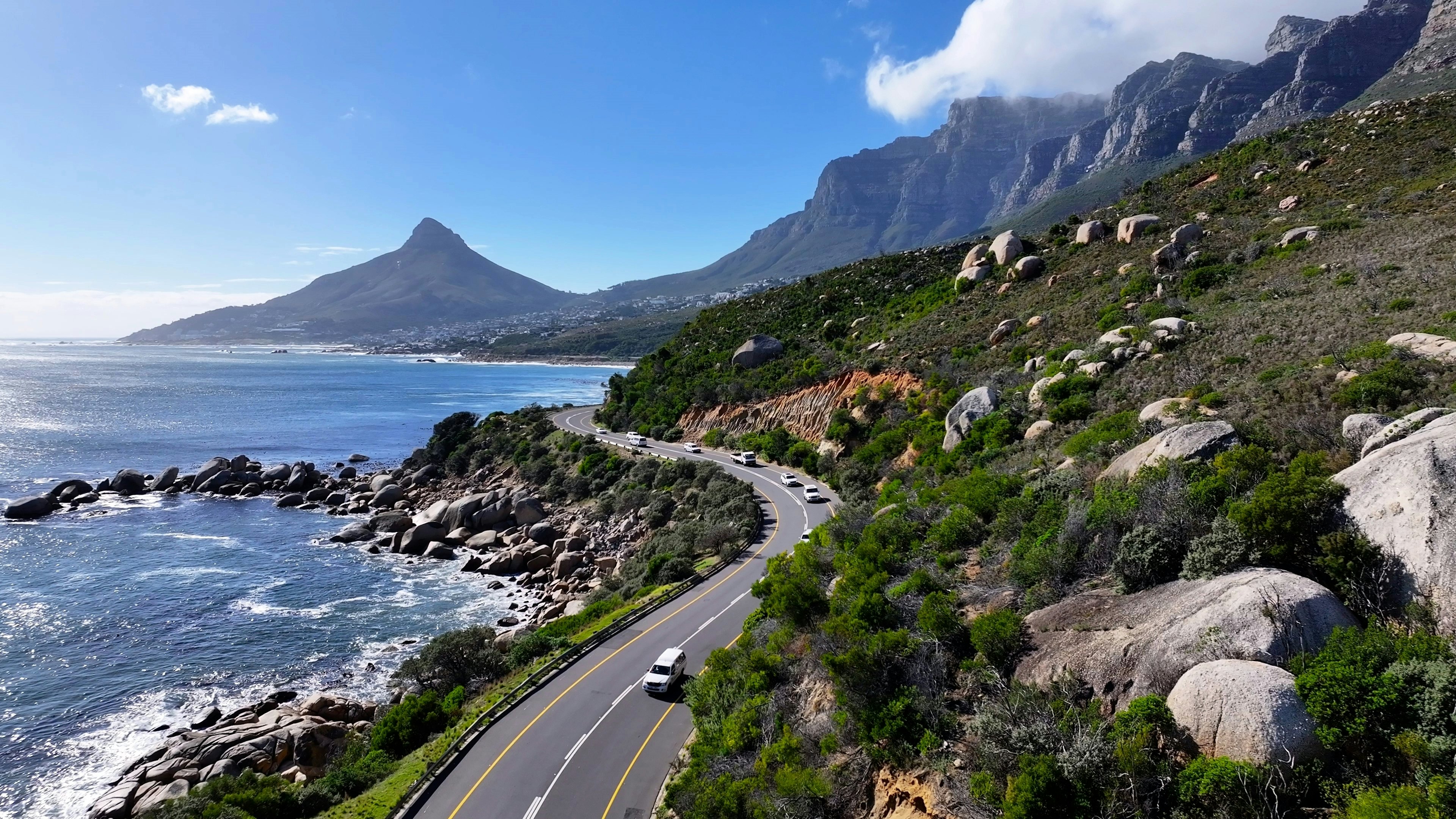
Taxis and Uber are available in cities
Hired taxis (normal sedans or hatchbacks) run in the major cities only, but the ubiquitous ride-sharing app Uber is a convenient, secure and reliable service that you can count on in most parts of the country.
Accessible transportation is good in South Africa
For travelers with mobility issues, South Africa might just be the easiest country on the continent to get around. Facilities include boardwalks and braille signage at the most developed national parks and reserves. Wheelchair users have easy access in getting around city centers, especially in Cape Town and Johannesburg.
Avis and Budget are the nationwide rental companies that supply vehicles with hydraulic lifts and wheelchair restraints. Disabled Travel is a great resource for listings, compiled by an occupational therapist, detailing a vast range of accommodations and resources for travelers with disabilities.
Durban-based Access 2 Africa Safaris runs everything from day trips to 12-day tours taking in Zululand, Kruger and eSwatini (formerly Swaziland). Travel with Renè is a fantastic tour operator that runs a range of exciting tours, including whale-watching and winelands tours, in the Cape area. Renè, a Black woman who became quadriplegic as a result of a motor accident in 1995, has a vehicle that can take six passengers, including three wheelchairs at a time.
South African National Parks has produced the Comprehensive Guide to Universal Access in South African National Parks for Guests with Disabilities, an excellent 24-page PDF.






